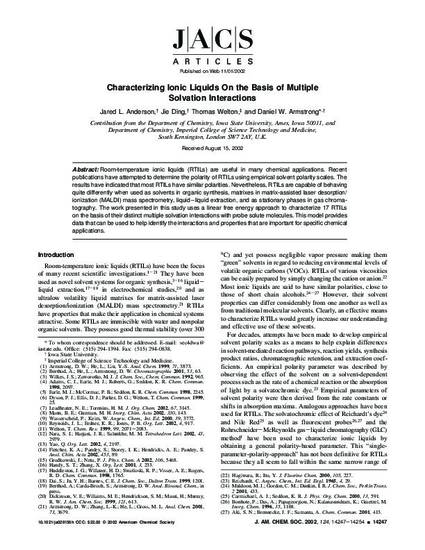
Room-temperature ionic liquids (RTILs) are useful in many chemical applications. Recent publications have attempted to determine the polarity of RTILs using empirical solvent polarity scales. The results have indicated that most RTILs have similar polarities. Nevertheless, RTILs are capable of behaving quite differently when used as solvents in organic synthesis, matrixes in matrix-assisted laser desorption/ionization (MALDI) mass spectrometry, liquid−liquid extraction, and as stationary phases in gas chromatography. The work presented in this study uses a linear free energy approach to characterize 17 RTILs on the basis of their distinct multiple solvation interactions with probe solute molecules. This model provides data that can be used to help identify the interactions and properties that are important for specific chemical applications.
Available at: http://works.bepress.com/jared_anderson/19/

Reprinted (adapted) with permission from Journal of the American Chemical Society 124 (2002): 14247, doi: 10.1021/ja028156h. Copyright 2002 American Chemical Society.